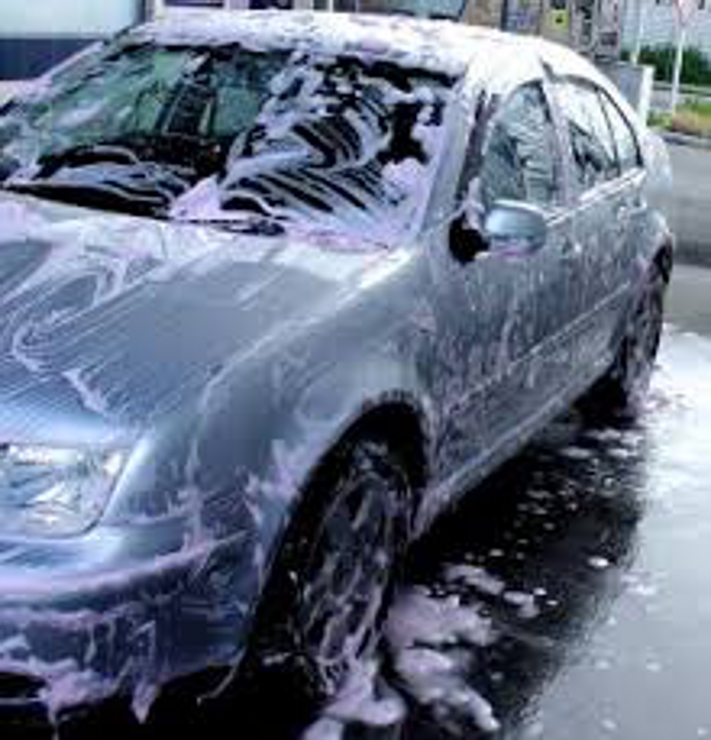UNITED STATES—Two British girls traveling in Los Angeles had met the poet Eric on a bus on his way home from the law office. They came breezing into the living room at Nadeau Dr. one evening around Boone’s Farm hour. One of them had slightly buck teeth; they giggled a lot. After that, they kept coming to share their travel tales. One night they came back utterly amazed.
“We went out to the beach at Malibu, and they paid us $75 dollars to wash their cars.”
This caught my ear and roused my business sense. Car washing could offer a way to invest some money I earned spending all night in a baseball diamond in outer Siberia (i.e. The Valley), cheering and standing and sitting in the floodlit bleachers for a movie. There was a paycheck involved. That check gave me the wherewithal to invest in sponges, car wax and some rags. Buckets we scrounged from empty five-gallon paint buckets and we brought newspapers to dry glass. At the time Antoine was staying at the house on Nadeau, in addition to several scribes and artists and a pet rat with no name.
Antoine was tall as a basketball player, he had soft manners and had a few piercings too. Before that British girl actually met him, Eric described Antoine as “tall, dark and handsome.” Oh, did I mention, he was African-American and the son of an opera singer who had performed for the Met.
This meant he was another person in need of housing and serious direction. And he became my accomplice in the quest to find cars to wash in Malibu. At $75 a car, two cars we’d have it made for a month. You do the math.
Once more we faced intimidating distances, such as when I went to the movie shoot in the baseball bleachers. It seemed it took a village whenever I needed to go anywhere in Los Angeles. This time, however, Antoine and I made the skeletal public transit system work for us. Amazingly, a bus went to Malibu—hard to believe—and this was because the lines transported the ladies often carrying buckets and soap out to the estates they kept spotless, their toilets smelling rose scented.
To give you an idea of the distance: from Crenshaw to Malibu was 10 miles more than from Dover to Calais, across the English Channel. These distances were so formidable, and surely a part of my wide-eyed love for Los Angeles had been protected, previously, by my limited exposure to the city’s 503 square-mile expanse. You could fit all of the Kingdom of Tonga into Los Angeles and still have room left for Barbados and the Marshall Islands.
Incidentally, it is impossible to say where Malibu begins and where it ends. Like Ketchikan, Alaska, it seems to be three blocks wide and 12 miles long—longer. We decided to get off the bus across the street from the walled off Colony, me and my six-and-a-half-feet tall companion. We had made a big poster-painted sign that said car wash and laid out our buckets and other implements.
I was a bit uptight (Antoine did not have an uptight bone in his lanky body) about getting hassled. Something about entry-level capitalism always feels edgy. We stood there in the dust on the side of the road for maybe 20 minutes. No takers. Only rolled up windows, people behind the wheel who stiffened and stared stonily ahead.
Where were all these people the British girls had oohed and aahed about, ready and willing to fork over $75 for a car wash?
Pretty soon a security jeep from the Malibu gate drove up and asked us to leave. Antoine and I trudged onward to a shopping center. In the parking lot a white woman was passing out fliers for the United Farm Workers against pesticides in front of Ralphs. She gave me the cold shoulder when I wanted to talk about Cesar Chavez. Maybe the presence of “tall, dark and handsome” was a factor; it was weird to think about my partner scaring off customers. I, white as I am, could have been scary looking flashing a “Car Wash” sign at passing cars while trying to chat up the pesticide activist.
It was there in this shopping center that we found the owner of a bicycle shop with dirty windows. The windows weren’t really dirty at all, but he wanted us to wash them. He promised us $10. He provided a squeegee and we dried it with newspapers. I am honestly not sure if we left the windows better than we found them, but the bicycle shop guy was good at his word. He paid us, and it felt good.
As the distances of darkening sea rolled past outside the bus returning to the city, I felt good. The sweat cooled on our bodies and it was nice to have some cash, even if we about broke even between the cost of the turtle wax and the bus fare. One thing we learned: to carwash in Malibu it may have behooved us to be female and British.
To be continued…
Humorist Grady Miller is the author of the humor collection “Late Bloomer,” available on Amazon.com. Grady can be reached at grady.miller@canyon-news.com.






